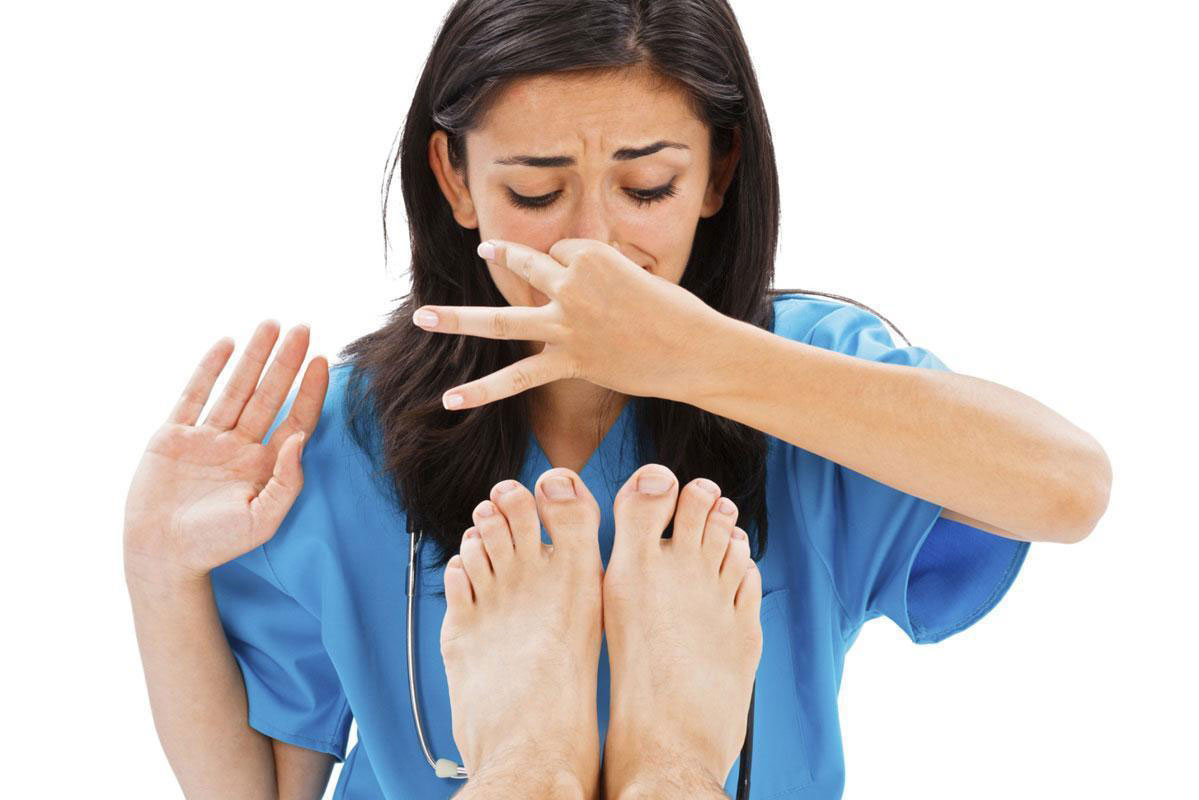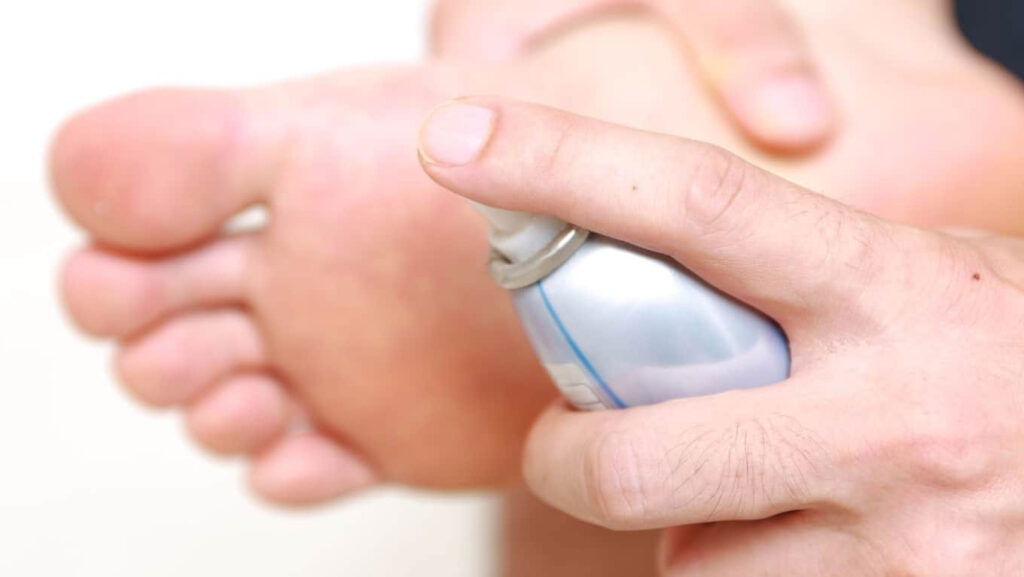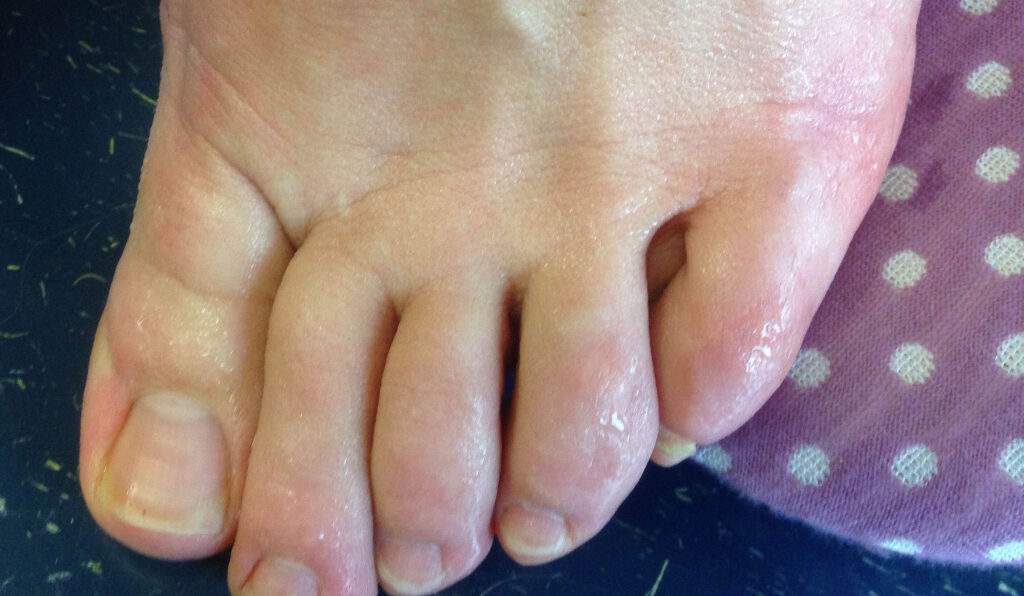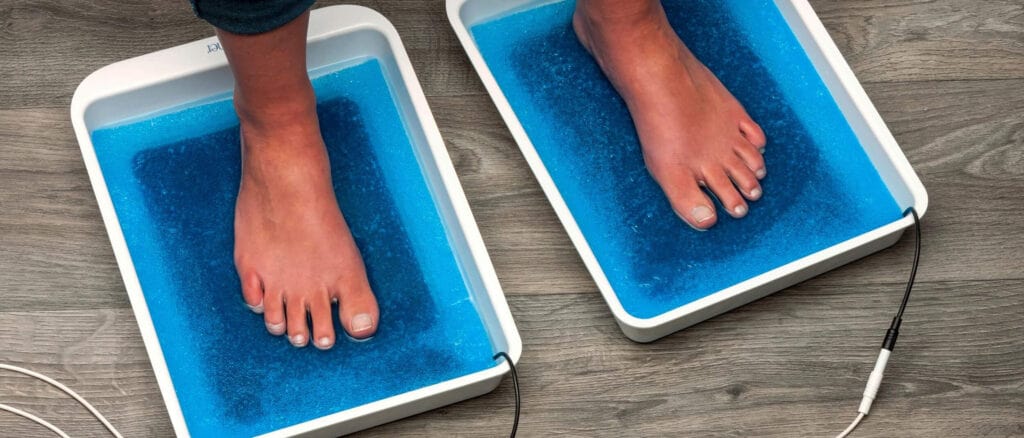ARE YOU EMBARRASSED BY THE SMELLY FEET?
Our feet bear the weight of the whole body and they are subject to aches, pains, and smells along the way. Some people may experience smelly feet from time to time, whereas some people live in fear of taking their shoes off in public.
A smelly foot is a common problem that can trouble you at any time of the year – season, temperature, or medical issue. This condition is medically known as bromodosis.
Your feet may get smelly as there is build-up in sweat that causes bacteria to grow on your skin and give off a bad odor. There could be other reasons for smelly feet that include wearing sweaty shoes and socks, and poor foot hygiene.
Smelly feet can be an unpleasant and embarrassing problem especially when you are in public. But, this can be easily treated by improving your foot hygiene and trying a few simple foot treatments. But, there may be a medical reason for your smelly feet, and this may need medical assistance from a doctor.

WHEN TO SEE A DOCTOR FOR SMELLY FEET?
Malodor or bromodosis may be localized or may start from other parts of the body. Smelly feet may result from an infection after the accumulation of sweat. The sweat in the feet itself does not result in smell, but it provides a good environment for the growth of bacteria. The bacteria striving on the sweat release gases that cause the smell of the feet. Some of the bacteria commonly responsible for feet odor include Brevibacteria, Propionibacteria, and Staphylococcus epidermidis. The smelly feet may be worst in summer. Some of the common causes of smelly feet include:
- Lack of hygiene: This would result in sweaty feet and the dwelling of the bacteria. The lack of hygiene would include failure to change socks daily, failure to wash sports shoes regularly, or failure to wash feet regularly.
- Unhealthy foot habits such as the use of nylon socks that do not absorb sweat or the use of plastic or closed shoes that do not allow the feet to breathe freely.
- Excessive tendency sweating that results in the accumulation of sweat and promotes bacterial growth. This may result in pitted keratolysis, which is a condition with punched-out pits that causes a foul smell.
- Infection caused by ringworm or other bacteria. The bacterial infection may cause ulcers affecting the region between the toes. The ulcers are usually common with diabetic people or obstruction of blood flow to the feet.
- Being on your feet for a long time.
- Hormonal changes may make you sweat more, especially in pregnancy or teenage transition.
- Stressful conditions make you sweat more usually when you’re anxious.
- Suffering from hyperhidrosis.

Smelly feet may be caused by various reasons. Sometimes, feet odor could be the result of a severe medical condition requiring a doctor’s visit. This may include:
- Occurring more than once a week.
- A lot of sweating for at least 6 months.
- Interrupting daily activities.
- Affecting social interactions, self-esteem, and quality of life.
- Frequent night sweats.
- Family history of hyperhidrosis.
- Weight loss without any reason.
- Fever with chills.
- Fast heart rate.
- Feeling dizzy or faint.
- Headache.
- Feeling confused.

HOW DO DOCTORS DIAGNOSE THE SEVERE EFFECTS OF SMELLY FEET?
Feet odor is the biggest symptom of bromodosis. The doctor may check if you have foot infections like athlete’s foot or cuts in your skin that may have caused other kinds of infections like cellulitis.
The doctor would also look for symptoms of hyperhidrosis or any other underlying medical conditions that may be putting your feet at risk of damage, like diabetes, peripheral neuropathy, or peripheral artery disease.
If the smell is coming from other parts of your body, or you’re sweating a lot in general, a doctor may get blood tests or urine tests to find out if there’s an underlying condition that may be causing these symptoms. The test may involve taking a scrap of skin from your foot to send to a laboratory to check for the cause of feet odor such as athlete’s foot.
HOW TO AVOID AND TREAT SMELLY FEET?
Home and self-care treatments help you deal with the problem of sweaty as well as smelly feet. To take care of your feet and reduce their smell, make sure you:
- Wash your feet well every day with mild soap and warm water. Scrub the feet at least once a day. But most importantly dry your feet completely after washing, especially between your toes, where any wetness can easily cause bacteria to grow.
- Clip your toenails and keep them short and clean.
- Remove any hard or dead skin from the soles of your feet by filing it off. This hard skin can get soggy and soft. When this skin is wet,
- creating a place where bacteria like to live.
- Wear a new pair of socks every day. Change them during the day if they get too damp. If you’re in a hot environment, exercising, or in any other situation where your feet may become sweaty, you should change your socks more often.
- Do not use socks that are not able to absorb moisture such as nylon socks. Instead, choose socks that absorb moisture and keep your feet dry. These socks may include thick, soft socks made out of natural fibers or sports socks.
- If your feet sweat a lot wear open-toed sandals in warm weather and go barefoot indoors when appropriate to allow your feet to stay dry.
- Avoid tight-fitting shoes as well as shoes that may retain moisture.
- Apply a small amount of rubbing alcohol to your feet with the help of a cotton ball every night to keep it dry. Avoid applying rubbing alcohol to any cracks in your skin.
- If your feet sweat more than usual apply an antifungal foot spray or medicated foot powder on your feet once daily. Insert medicated deodorant insoles into your shoes to avoid any bacterial or fungal infection.
- Antiperspirant or deodorant helps in cutting down the feet odor quickly.
- Soak your feet in Listerine or vinegar to prevent.

Home treatments usually do a good job of helping to reduce or eliminate your foot odor. But, if home treatments don’t help alleviate your bromodosis, or if you’re concerned that the sweating and odors are severe, you should see your doctor. The doctor may prescribe stronger antiperspirants and foot soaps and can offer advice on medical treatments for excessive sweating (hyperhidrosis).
OUTLOOK
Foot odor is a common condition, but it can make you feel self-conscious. With daily hygiene and self-care bromodosis is quite simple to treat. You should be able to reduce or eliminate your foot odor within a week.
It is important to make foot care a regular part of your hygienic routine. Self-care and home treatments are generally very effective, but in severe cases, your doctor can prescribe stronger treatments.
People Also Read:
If you or anyone you know is suffering from foot problems, our expert providers at Specialty Care Clinics will take care of your health and help you recover.
Call us on (469) 545-9983 to book an appointment with our specialists.
